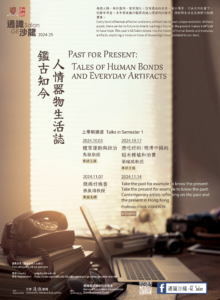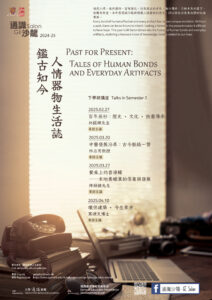The aim of GE Salon is to explore issues of common human concern from cross-disciplinary and cross-cultural perspectives, with a view to encouraging students to reflect upon questions related to the contemporary world and to foster intellectual discussions on campus.




